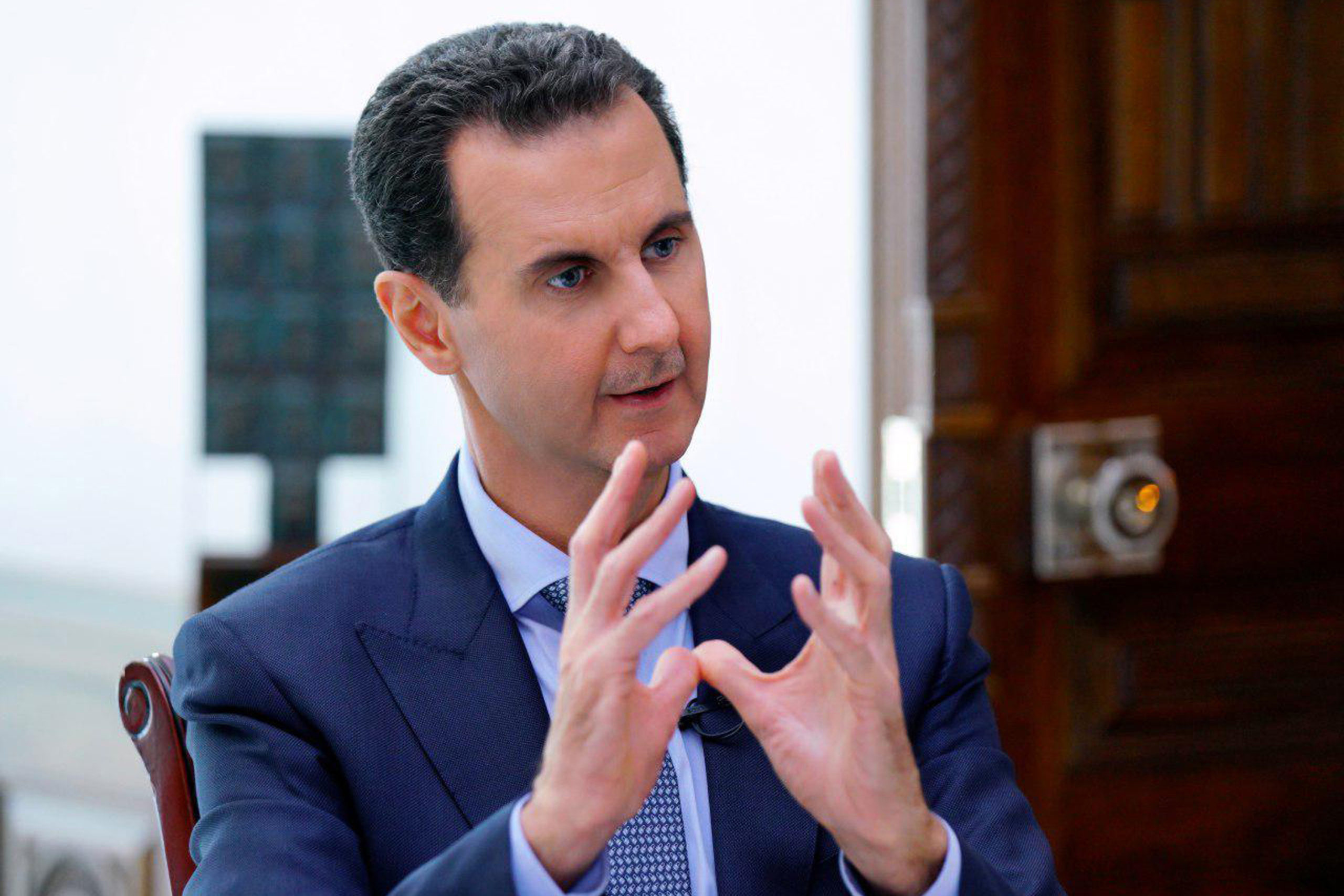
The fall of Hama, which was in government hands throughout the civil war triggered by a 2011 rebellion against Assad, will send shockwaves through Damascus and fears of a continued rebel march south.
By The Algemeiner and Reuters
Syrian rebels captured the key city of Hama on Thursday, bringing the insurgents a major victory after a lightning advance across northern Syria and dealing a new blow to President Bashar al-Assad and his Russian and Iranian allies.
The Syrian army said it was redeploying outside the city “to preserve civilians lives and prevent urban combat” after what it called intense clashes.
Rebels said they were preparing to keep marching south towards Homs, Syria’s great crossroads city that links the capital Damascus to the north and coast.
“Your time has come,” said a rebel operations room in an online post, calling on city residents to rise up in revolution.
Al Jazeera television broadcast what it said were images of rebels inside Hama, some of them greeting civilians near a roundabout while others drove in military vehicles and on mopeds.
The rebels took the main northern city of Aleppo last week and have since pushed south from their enclave in northwest Syria. Fighting has raged around villages outside Hama for two days.
The fall of Hama, which was in government hands throughout the civil war triggered by a 2011 rebellion against Assad, will send shockwaves through Damascus and fears of a continued rebel march south.
Assad relied heavily on Russian and Iranian backing throughout the most intense years of the conflict, helping him to claw back most territory and the biggest cities before front lines froze in 2020.
The collapse of pro-government forces in northern Syria over the past week underlines the problems that alliance has faced since.
Russia has been focused on the war in Ukraine since 2022. Lebanon’s Hezbollah, which had been the most potent Iran-backed force in Syria, has suffered heavy losses in its own war with Israel.
As his forces swept into Hama, the main insurgent commander Abu Mohammed al-Golani issued a video statement warning against any involvement by the other main regional force that is aligned with Iran — Iraq’s Hashd al-Shaabi militias.
Some Iraqi fighters entered Syria early this week to support Assad, Iraqi and Syrian sources said. The Hashd al-Shaabi has mobilized along the border with Syria saying this was purely preventative in case of spillover into Iraq.
“We urge him [Iraq’s prime minister] again to keep Iraq away from entering into the flames of a new war tied to what is happening in Syria,” Golani said.
PIVOTAL CITY
Hama lies more than a third of the way from Aleppo to Damascus and its capture would prevent any quick attempt by Assad and his allies to launch a counteroffensive against rebel gains of the past week.
A rebel advance on Homs, 40km (24 miles) south of Hama, could meanwhile cut Damascus off from the coastal region that is a stronghold of Assad‘s Alawite sect and where his Russian ally has a naval base and airbase.
“Assad now cannot afford to lose anything else. The big battle is the one coming against Homs. If Homs falls, we are talking of a potential change of regime,” said Jihad Yazigi, editor of the Syria Report news letter.
Hama is also critical to control of two major towns with big minority religious communities: Muhrada, home to many Christians, and Salamiya where there are many Ismaili Muslims.
Although Hama had not previously been taken by rebels during the war, it was historically a center of opposition to the Assad dynasty’s rule.
In 1982 Muslim Brotherhood activists rose up in revolt there and the military launched a devastating three-week assault that killed more than 10,000 people and would come to be seen as a model for Assad‘s campaign against the rebels.
Golani referred to that bloody episode in his statement, saying “the revolutionaries have begun entering the city of Hama to cleanse that wound that has persisted in Syria for 40 years.”
However, he added that rebels taking Hama would not exact revenge for the events of 1982.
ADVANCE
The most powerful rebel faction is the militant Sunni Islamist Hayat Tahrir al-Sham (HTS), the former al Qaeda affiliate in Syria. Golani, its leader, has pledged to protect Syria’s religious minorities and has called on them to abandon Assad, but many remain fearful of the insurgents.
On Wednesday, Golani visited Aleppo’s historic citadel, a symbolic moment for rebels driven out of the city in 2016 after months of siege and intense fighting, their biggest defeat of the war. Aleppo was Syria’s biggest city before the war.
HTS and the other rebel groups are trying to consolidate their rule in Aleppo, bringing it under the administration of the so-called Salvation Government they established in their northwestern enclave.
Aleppo residents have said there are shortages of bread and fuel, and that telecoms services have been cut.
Turkey, which designates HTS as a terrorist organization, has long been the biggest external backer of other rebel factions and its role will be critical to the future of any enlarged insurgent region in Syria.
Ankara has denied having any role in the rebels‘ sudden sweep into Aleppo last week. It has maintained a military presence in northern Syria since 2016 and its stance will be critical for any expanded rebel enclave in the north.
The post Syrian rebels capture key city of Hama in fresh blow to Assad appeared first on World Israel News.